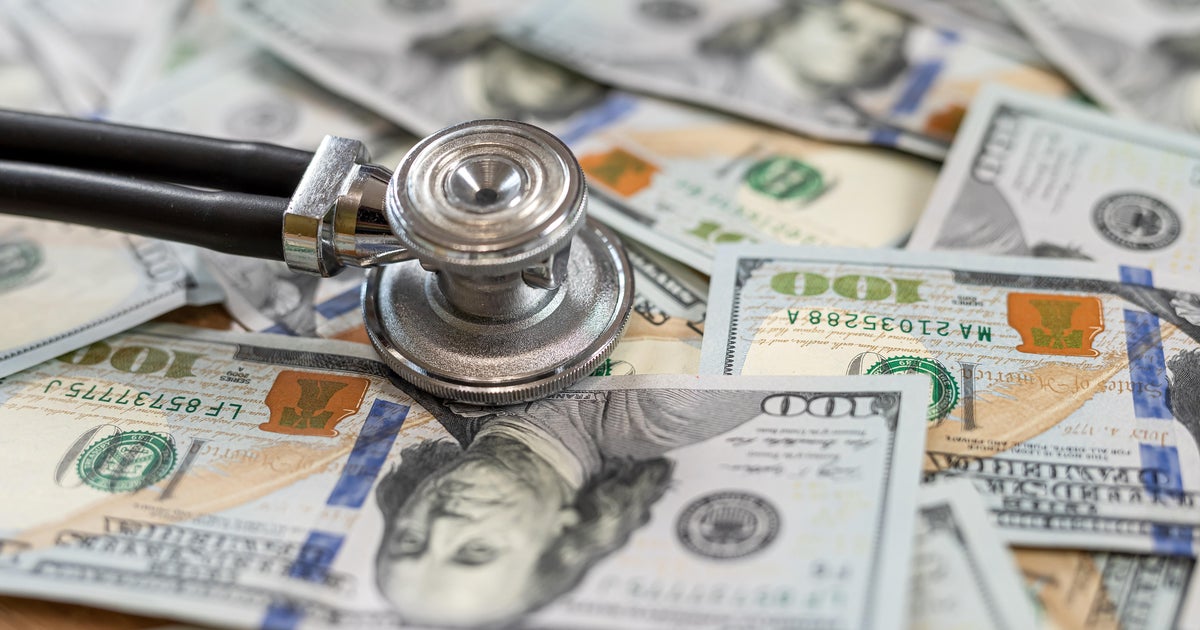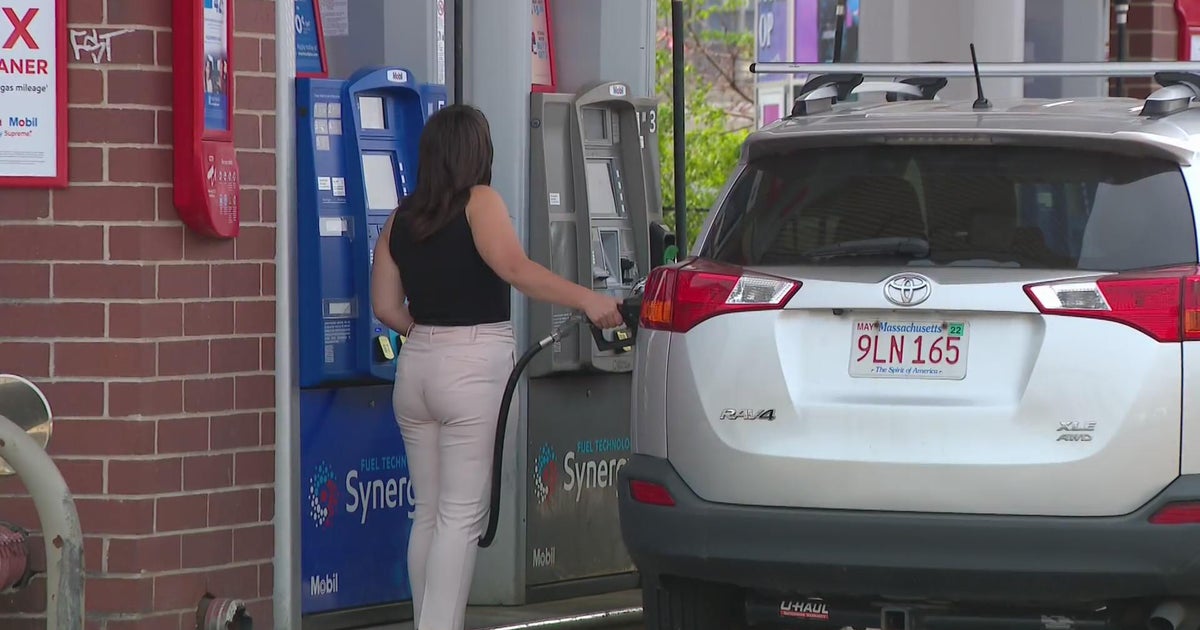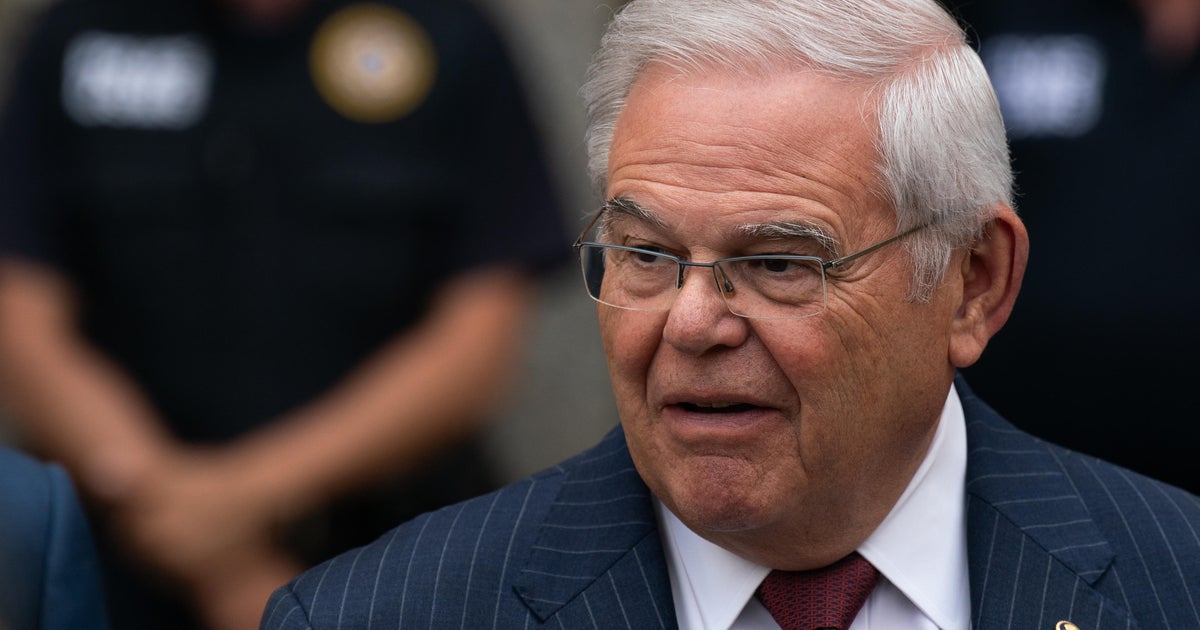CBS News
A toddler got a nasal swab test but left before seeing a doctor. The bill was $445.

Ryan Wettstein Nauman was inconsolable one evening last December. After being put down for bed, the 3-year-old from Peoria, Illinois, just kept crying and crying and crying, and nothing would calm her down.
Her mother, Maggi Wettstein, remembered fearing it could be a yeast or urinary tract infection, something they had been dealing with during potty training. The urgent care centers around them were closed for the night, so around 10:30 p.m. she decided to take Ryan to the emergency room at Carle Health.
The medical procedure
The ER wasn’t very busy when they arrived at 10:48 p.m., Wettstein recalled. Medical records indicate they checked in and she explained Ryan’s symptoms, including an intermittent fever. The toddler was triaged and given a nasal swab test to check for Covid-19 and influenza A and B.
Wettstein said they sat down and waited to be called. And they waited.
As Wettstein watched Ryan in the waiting room’s play area, she noticed her daughter had stopped crying.
In fact, she seemed fine.
So Wettstein decided to drive them home. Ryan had preschool the next day, and she figured there was no point keeping her awake for who knew how much longer and getting stuck with a big ER bill.
There was no one at the check-in desk to inform that they were leaving, Wettstein said, so they just headed home to go to bed.
Ryan went to her preschool the next day, and Wettstein said they forgot all about the ER trip for eight months.
Then the bill came.
The final bill
$445 for the combined Covid and flu test — from an ER visit in which the patient never made it beyond the waiting room.
The billing problem: A healthy hospital markup and standard insurance rules
Even though Ryan and her mother left without seeing a doctor, the family ended up owing $298.15 after an insurance discount.
At first, Wettstein said, she couldn’t recall Ryan being tested at all. It wasn’t until she received the bill and requested her daughter’s medical records that she learned the results. (Ryan tested negative for Covid and both types of flu.)
While Wettstein said the bill isn’t going to break the bank, it seemed high to her, considering Walgreens sells an at-home Covid and flu combination test for $30 and can do higher-quality PCR testing for $145.
Under the public health emergency declared in 2020 for the Covid pandemic, insurance companies were required to pay for Covid tests without copayments or cost sharing for patients.
That requirement ended when the emergency declaration expired in May 2023. Now, it is often patients who foot the bill — and ER bills are notoriously high.
“That’s a pretty healthy markup the hospital is making on it,” Loren Adler, associate director of the Brookings Institution Center on Health Policy, told KFF Health News when contacted about Ryan’s case.
The rates the insurance companies negotiate with hospitals for various procedures are often based on multipliers of what Medicare pays, Adler said.
Lab tests are one of the few areas in which insurance companies can often pay less than Medicare, he said — the exception being when the test is performed by the hospital laboratory, which is often what happens during ER visits.
Medicare pays $142.63 for the joint test that Ryan received, but the family is on the hook for more than twice that amount, and the initial hospital charge was over three times as much.
The hospital is “utilizing their market power to make as much money as possible, and the insurance companies are not all that good at pushing back,” Adler said. A markup of a few hundred dollars is a drop in the bucket for big insurers. But for the patients who get unexpected bills, it can be a big burden.
Brittany Simon, a public relations manager for Carle Health, did not respond to specific questions but said in a statement, “We follow policies that support the safety and wellbeing of our patients, which includes the initial triage of symptomatic patients to the Emergency Department.”
While Ryan’s family would not have had to pay for a Covid test during the public health emergency, it was the family’s insurer, Cigna, that did not have to pay this time, since the family had not yet met a $3,000 yearly deductible.
A Cigna representative did not respond to requests for comment.
The resolution
Wettstein said she knew she could just pay the bill and be done with it, “but the fact that I never saw a provider, and the fact that it was just for a Covid test, is mind-blowing to me.”
She contacted the hospital’s billing department to make sure the bill was correct. She explained what happened and said the hospital representative was also surprised by the size of the bill and sent it up for further review.
“‘Don’t pay this until you hear from me,'” Wettstein remembered being told.
Soon, though, she received a letter from the hospital explaining that the charge was correct and supported by documentation.
Wettstein thought she was avoiding any charges by taking Ryan home without being seen. Instead, she got a bill “that they have verified that I have to pay.”
“Like I said, it’s mind-blowing to me.”
The takeaway
ERs are among the most expensive options for care in the nation’s health system, and the meter can start running as soon as you check in — even if you check out before receiving care.
If your issue isn’t life-threatening, consider an urgent care facility, which is often cheaper (and look for posted notices to confirm whether it’s actually an urgent care clinic). The urgent care centers near Ryan’s home were closed that evening, but some facilities stay open late or around the clock.
In some ways, Wettstein was lucky. KFF Health News’ “Bill of the Month” has received tips from other patients who left an ER after a long wait without seeing a doctor — and got slapped with a facility fee of over $1,000.
Making the decision about where to go is tough, especially in a stressful situation — such as when the patient is too young to communicate what’s wrong. Trying to figure out what’s going on physically with a 3-year-old can feel impossible.
If you decide to leave an ER without treatment, don’t just walk out. Tell the triage nurse you’re leaving. You might get lucky and avoid some charges.
Wettstein won’t think twice about taking Ryan to the pediatrician or an urgent care center the next time she’s ailing. But, Wettstein said, after getting this bill, “I’m not going to create a habit out of going to the emergency room.”
Bill of the Month is a crowdsourced investigation by KFF Health News and The Washington Post’s Well+Being that dissects and explains medical bills. Since 2018, this series has helped many patients and readers get their medical bills reduced, and it has been cited in statehouses, at the U.S. Capitol, and at the White House. Do you have a confusing or outrageous medical bill you want to share? Tell us about it!
KFF Health News is a national newsroom that produces in-depth journalism about health issues and is one of the core operating programs at KFF—an independent source of health policy research, polling, and journalism. Learn more about KFF.
Subscribe to KFF Health News’ free Morning Briefing.
This article first appeared on KFF Health News and is republished here under a Creative Commons license.
CBS News
Trump tariffs on Canada imports could lead to sharply higher gas prices, experts warn

Americans may be shelling out more for gasoline if the incoming Trump administration follows through on threats to impose tariffs on imports from Canada and Mexico.
President-elect Donald Trump this week said he would enact a 25% tariff on all products from both countries, citing concerns about illegal immigration and illicit drugs flowing into the U.S. While prices could climb on a variety of goods shipped to the U.S., the potential impact on motorists and on the transportation sector could be particularly acute, analysts say.
“Canada and Mexico are huge U.S. trading partners, so it’s a shot across the bow of longtime U.S. allies,” Patrick De Haan, head of petroleum analysis at GasBuddy, told CBS MoneyWatch.
“For a lot of the U.S., it could be problematic for what they pay at the pump,” De Haan said of the tariffs’ impact, in particular to inland regions such as the Great Lakes, Midwest and the Rockies. “The coastal areas have more options — they don’t rely as much on Canadian crude.”
Although the U.S. is the world’s leading oil producer, we still import a lot of crude, with Canada providing roughly 20% of the oil used stateside. As a result, gas prices could shoot up 30 to 40 cents a gallon, and potentially up to 70 cents, within as little as two days after the tariffs take effect, De Haan said.
The national average for a gallon of regular on Wednesday stood at $3.07, down from $3.25 a year ago, according to AAA.
The threatened tariffs on imports from Mexico and Canada could also result in a $3,000 increase in the cost of the average car, according to Wolfe Research analysts cited by the Wall Street Journal. Roughly $97 billion in auto parts are imported to the U.S. from the two nations annually, and 4 million vehicles are shipped in — roughly 3 million from Mexico and 1 million from Canada, the firm estimated.
To be sure, it remains uncertain if Trump will follow through on his trade threats. Some analysts think the president-elect is likely using the specter of tariffs as a way to wring concessions from other countries, noting that his administration will be eager to avoid setting off another round of inflation just as U.S. prices are growing at a normal level.
“We would be surprised if [the tariffs] were ever actually implemented,” analysts with investment adviser Capital Economics wrote in a report, noting that the auto sectors in the Canada, Mexico and the U.S. are tightly interconnected.
CBS News
Macy’s Thanksgiving Day Parade balloons coming to life

Watch CBS News
Be the first to know
Get browser notifications for breaking news, live events, and exclusive reporting.
CBS News
Ex-Sen. Bob Menendez seeks new trial, citing evidence prosecutors said was inadvertently provided to jury

Washington — Former New Jersey Sen. Bob Menendez asked a federal court in New York on Wednesday to throw out his conviction in a sprawling bribery scheme and grant him a new trial after prosecutors disclosed that the jury was inadvertently provided information during deliberations that it should not have been given.
The request from Menendez’s lawyers came in response to a letter prosecutors sent to the court on Nov. 13 revealing they had unintentionally loaded onto a laptop given to the jury during deliberations the incorrect versions of nine exhibits. Prosecutors said neither they nor Menendez’s lawyers, who inspected the exhibits on the laptop, noticed the error at the time.
Government lawyers told U.S. District Judge Sidney Stein that they did not believe the inclusion of the nine exhibits warranted upsetting Menendez’s guilty verdict, in part because “there is no reasonable likelihood any juror ever saw any of the erroneously less-redacted versions.” But Menendez’s lawyers told Stein in a separate filing that the improper disclosure was a “serious breach” by prosecutors and said a new trial was “unavoidable.”
The exhibits, they said, “exposed the jury to a theory of criminality that the government was barred from presenting under the Speech or Debate Clause — namely, that Senator Menendez made specific decisions with respect to military sales to Egypt in exchange for bribes.”
Under the Speech or Debate Clause of the Constitution, senators or House members “shall not be questioned” for “any speech or debate” in either chamber of Congress. Stein had ruled that certain material referencing arms sales and military aid to Egypt were legislative acts shielded by the clause.
Menendez’s defense team said the information disclosed to the jury contained the only evidence that tied him to the provision of military aid to Egypt, which was at the center of the bribery scheme the New Jersey Democrat was accused of engaging in.
They also lambasted prosecutors for attempting to “shift the blame,” calling it “factually and legally outrageous.”
Prosecutors said the court had “expressly prohibited” evidence of past legislative activity, including actions Menendez allegedly took as a senator about foreign aid to Egypt, and said the evidence at issue “squarely crossed that line … and allowed the jury to infer bribery from Senator Menendez’s legislative acts — exactly what the Speech or Debate Clause is meant to prevent.”
Prosecutors claimed that Menendez helped orchestrate a corrupt agreement through which he would work to secretly benefit the Egyptian government in exchange for lavish gifts including cash, gold bars, a Mercedes-Benz convertible, furniture and mortgage payments from three New Jersey businessmen.
He was convicted on 16 felony counts in July, including bribery, fraud and acting as a foreign agent.
Menendez’s two co-defendants in the case, Fred Daibes and Wael Hana, also separately asked the court to grant them new trials and toss out their convictions.
Menendez faced immense pressure to resign after he was indicted on federal bribery charges last year but resisted doing so until he was convicted. He stepped down from the Senate in August, a stunning capstone to a lengthy career in the upper chamber that included a position atop the Senate Foreign Relations Committee.
The former senator is set to be sentenced Jan. 29.



